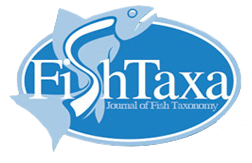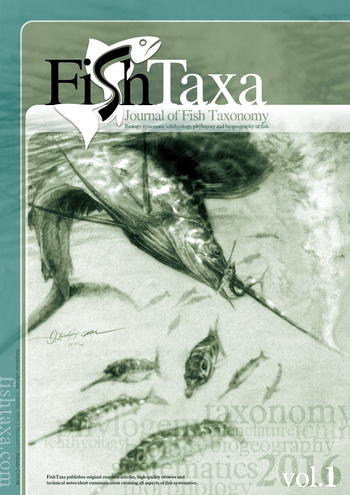Investigation of changes in the fish assemblage building and abundance in the Garmat Ali River, Southern Iraq
Abdul Hussein J. ABDULLAH
Department of Marine Vertebrate, Marine Science Center, University of Basrah, Basrah, Iraq
Sajad A. ABDULLAH
Department of Biology, College of Education-Qurna, University of Basrah, Basrah, Iraq
Mustafa S.F. ZIYADI
Department of Marine Vertebrate, Marine Science Center, University of Basrah, Basrah, Iraq
Nawras A. AL-FAIZ
College of Marine Sciences, University of Basrah, Basrah, Iraq
Abstract
The current study was conducted to study fish assemblage composition and population structure changes from Garmat Ali River from January to December 2020. Some ecological variables, including temperature, salinity, pH, and dissolved oxygen, were estimated. Altogether, 2168 fish specimens represented 32 species, 26 genera, and 17 families. There were eleven freshwater species, three in June and nine in May. The exotic species ranged from five to seven in June, October, and December. Fourteen species were marine, ranging from one in December to eight in June. Four species preceding the numerical relative abundance in the Garmat Ali River Ttrayssa whiteheadi, Carassius gibelio, Planiliza abu, and Orechromis aureus formed 15.50, 15.18, 12.82, and 10.79%, respectively. The diversity index (H) ranged from 1.97 (June) to 2.77 (May), with an overall value of 2.29. The evenness index (J) varied from 0.70 (November) to 0.88 (May and December), with overall values of 0.81. The richness index (D) fluctuated between 2.24 (June) and 3.41 (May), with overall values of 2.98. The study concluded that the composition of the fish assemblage and abundance has changed compared to previous studies, particularly older studies, due to the introduction of many exotic species into the river's fish community, the occurrence of marine species due to increased salinity concentrations, and the departure of sensitive freshwater native species.

